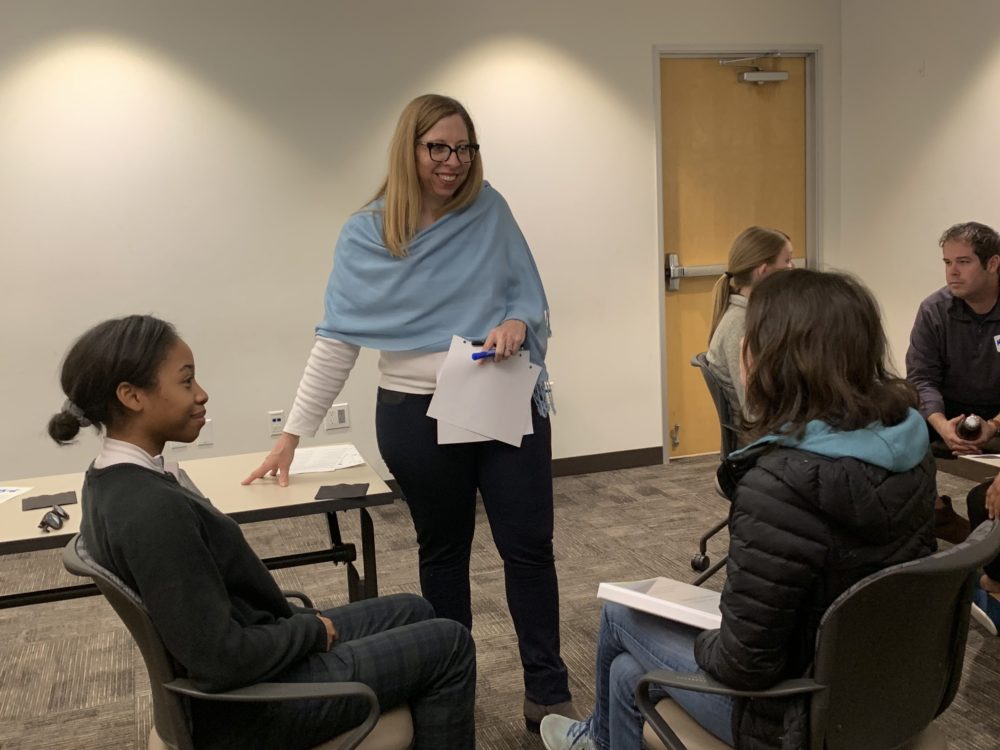
STUDENT AFFAIRS | Taking a significant step in implementing restorative justice practices in Student Affairs at Loyola Marymount University, 18 staff members participated in training in January and February 2019 led by Schoene Mahmood, program manager for the Restorative Justice Project in the LMU Center for Urban Resilience (CURes). This training provided a new tool to add to the skills and dialogue already in place to help further develop students.
Restorative justice practices build community and provide tools to facilitate dialogue on college campuses. “This provides a framework for a healthy dialogue with conflict at all levels,” said Eric Strauss, President’s Professor of Biology and director for LMU CURes. “It provides tools to help us embrace conflict daily and manage extreme cases where someone has been harmed. All the while, strengthening the social fiber that binds us together and trying never to exile members from the community.”
Restorative justice focuses on holding people accountable and asking three questions when conflict occurs:
- What happened?
- Who was affected?
- What can be done to repair the harm?
Julia Wade, associate director in the Office of Student Conduct and Community Responsibility, began to researching restorative justice as an alternative resolution model used on college campuses. Upon doing that research and searching for training, Wade realized that training and an expert were already available on campus. Mahmood, who leads the Restorative Justice Project for LMU CURes, provides training and resources for local schools and community groups.
“Too often we try to problem solve and offer unsolicited advice to others,” said Mahmood. “The practice of restorative justice is working on retraining our brains to not be solution oriented or to give advice to others, but rather to ask questions that help people come to their own solutions that are ultimately best for the community.”
For Wade, the training for Student Affairs staff members is a critical first step in the process that she hopes will expand to the broader campus community, with recent trainings for Sorority and Fraternity Life leaders and Residence Life staff. “The idea started by looking at how this training could have an impact on how we approach the student conduct environment, but we can see multiple layers of restorative practices that can help build up our entire campus community,” said Wade.
It would not have been possible without the support of Lane Bove, senior vice president of student affairs. “The implementation of restorative practices is a great step forward for the Division of Student Affairs,” said Bove. “These practices are well situated in the context of education of the whole person as they are a tool to further our work around dialogue across difference and controversy with civility.”
To learn more about the Restorative Justice Project, click here or complete this interest form.
Professor Scott Wood founded the Center for Restorative Justice in 2009 at the Loyola Law School, the second center of its kind in the U.S. established at a law school. It was renamed and moved Loyola Marymount University’s Westchester campus in 2013.



